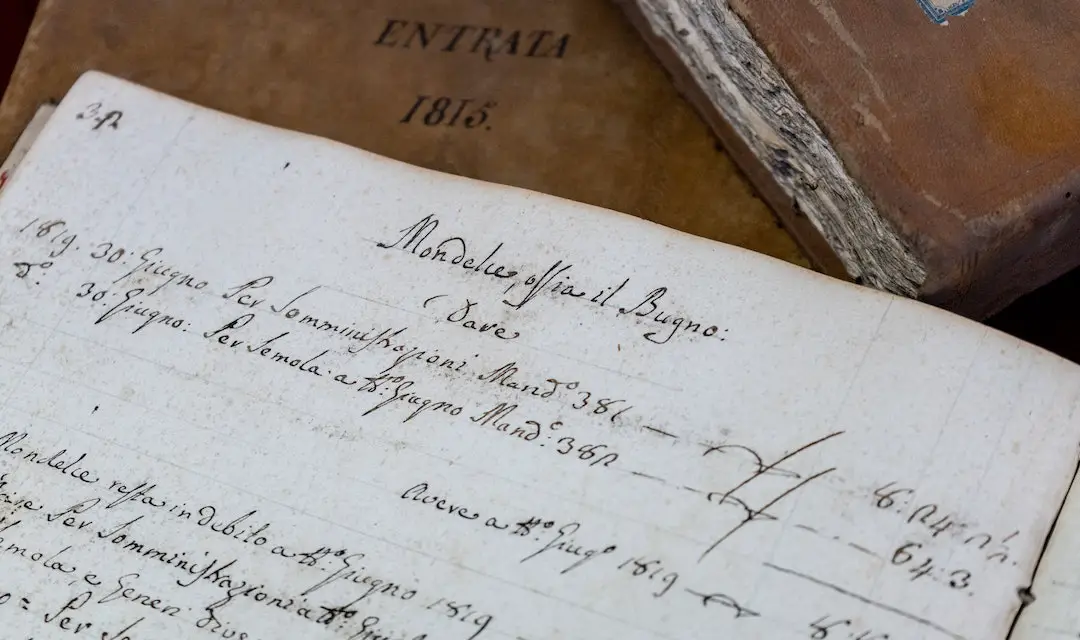The Doctrine of Incorporation by Reference in a last will and testament is the topic that we shall tackle at this point. I totally remember. While I was working from home, my friend, let us call her as “Theresa” (not her real name), came to me few days before I decided to write this article. She came to me hoping for light, desperately looking for an answer.
I figured maybe I can share the story with you too, so we can all come up with a concrete advice regarding her situation. Here it is:
Theresa was five years of age when she knew that she was an illegitimate child. It seemed normal nonetheless; her parents, even without marriage, was supportive and her relationship with her siblings was absolutely okay.
Not until last March when her father passed, and things started to change. According to her, Mr. – executed a will having all five children, including my friend, Theresa, thus making them all heirs of several properties.
A portion of the will, however, states that one of his father’s wishes is that their property in Laguna (farm) be given specifically to Theresa, the latter being the most qualified to take care of the same.
Said wish was stated in his father’s one and only treasured journal and to be precise, at the last page of the same, also signed in the lowest portion of the page, near the note where it says, “I love you, Theresa, anak.”
Upon the distribution of the properties, Theresa’s siblings, more importantly his brother, as executor, attested to such and refused to give Theresa the title of the property.
They contest that the bequest of the property written in the journal was not incorporated into the will, hence, fails as a testamentary devise. In addition to that, they now contest that Theresa is not a legitimate child of their father, therefore giving her no right on any property left behind by their father.
Doctrine of Incorporation by Reference
Immediately, I looked into the law and found an answer to Theresa’s questions. We have form two queries regarding Theresa’s situation. First, Is the wish of his father written on its journal incorporated into the will and thus can be a testamentary devise? Second, Can the will left by his father be revoked? If yes, Can Theresa lose the will’s legal and binding effect?
Can a written journal be a testamentary disposition, devise, or legacy?
At the outset, it must be noted that the any written document, albeit may be validly incorporated by reference to become part of the will, the same should not contain a testamentary disposition, devise, or legacy. Otherwise, those provisions are void and without any legal effect.
Testamentary dispositions should be contained in the last will and testament itself and not in some other documents or writing which may be in the future incorporated by reference in the will itself.
As to our first discussion, let us look into Article 827 of the Civil Code. To wit:
“Article 827. If a will, executed as required by this Code, incorporates into itself by reference any document or paper, such document or paper shall not be considered a part of the will unless the following requisites are present:1
-
- The document or paper referred to in the will must be in existence at the time of the execution of the will;2
- The will must clearly describe and identify the same, stating among other things the number of pages thereof;3
- It must be identified by clear and satisfactory proof as the document or paper referred to therein; and4
- It must be signed by the testator and the witnesses on each and every page, except in case of voluminous books of account or inventories.”5
Let us now apply the abovementioned provision in Theresa’s situation.
- First, Theresa’s father wrote the said wish in his treasured journal, which was referred to specifically on his will. It was clear that the document is in existence at the time of the execution of the will.
- Second, the will also mentioned which journal her father was referring to, stating as well the page where the wish can be found.
- Third, the journal was identified, as it was survived by her siblings. In fact, the executor was holding the same while pronouncing the will.
- Fourth, the same was signed by the testator, right under the note which was also clearly evidenced by Theresa’s name.
What happened in the first dilemma/situation where Theresa’s father mentioned a certain document in his will is called an Incorporation by reference. As incorporated, the extrinsic paper takes effect as part of the will and is admitted to probate as such.
The same is done merely by mentioning in the will that a certain document is referred thereto though not necessarily attached to the will itself.
Article 827 makes it clear that in cases such as Theresa’s, it provides a concrete solution, which is called the incorporation by reference, when it is necessary or there is a need for an explanation on some provisions of the will.
Case law provides that a will, duly executed and witnessed according to statutory requirements, may incorporate into itself, by an appropriate reference, a written paper or document which is in existence at the time of the execution of the will.
This is irrespective of whether such document is one executed by the testator or a third person, whether it is in and of itself a valid instrument, provided the document referred to is identified by clear and satisfactory proof.
There is another query worthy of discussion. Provided for example, there are several pages in the journal, say for example voluminous pages, and written thereto are also quite a number of wishes from her father.
What are the requirements for the document to be a valid incorporation of reference?
Then there will come the application of Article 827 paragraphs 2 and 4.
“(2) The will must clearly describe and identify the same, stating among other things the number of pages thereof;”6
“(4) It must be signed by the testator and the witnesses on each and every page, except in case of voluminous books of account or inventories.”7
First, even the number of pages of voluminous accounts or inventories must be stated. Second, it must also be signed. However, there is an exception to this case. It may not be signed for cases like voluminous books.
It must also be remembered and taken into consideration that such exception refers only to the signing of all pages; and even so, while not every page has to be signed, still it is believed that there must be a signature on at least several pages thereof for the purpose of identifying same as the documents really referred to.
Thus, in the given problem, a number of pages must still be signed by Theresa’s father even if the situation is for voluminous books.
Can the will left by her father be revoked?
One of the characteristics of a last will and testament is that it is ambulatory. Therefore, the same can be revoked during the lifetime of the testator, even if it has already been admitted for probate or without even an explanation coming from the testator himself.
Revocation may be express, by implication of law, or by acts of destruction coupled with an intent to revoke. The ultimate question, thus, is the effect of a recognition of the status of an illegitimate child contained in the will, whether revoked or not.
What is the effect of a recognition of the status of an illegitimate child contained in the will itself?
Under the Family Code of the Philippines, there are only children two categories of children, legitimate and illegitimate. On the other hand, the previous classifications of illegitimate children under the Civil Code have been wiped out by the Family Code.
However, for purposes of discussion, we shall categorize the illegitimate children under the Civil Code.8
Under the Civil Code, there are three kinds of illegitimate children, namely, natural children, natural children by legal fiction, and illegitimate children who belong to neither of the first two classifications and are also known as spurious.
The Civil Code provides that natural children are those born of parents who had legal capacity to contract marriage at the time of conception, while natural children by legal fiction are those conceived or born of marriages which are void from the beginning.9
In De Santos vs. Angeles,10 we described spurious children as those with doubtful origins. There is no marriage, valid or otherwise, that would give any semblance of legality to the child’s existence. Paternity presupposes adultery, concubinage, incest, or murder, among others. These classifications are significant as the Civil Code provides for varying degrees of rights for the use of surname, succession, and support depending on the child’s filiation.11
Case law provides that to be entitled to support and successional rights from his putative or presumed parents, an illegitimate (spurious) child must prove his filiation to them, which may be established by the voluntary or compulsory recognition of the illegitimate child.12
Status of Theresa
Theresa is not one from spurious children. So let us discuss the given situation not in line spurious children. As provided under the law, a will may only be revoked by the testator at anytime before his death. Therefore, the revocation shall not be an issue on Theresa’s situation.
Nonetheless, for the purposes of discussion, assuming arguendo that his father is still alive, the recognition of an illegitimate child does not lose its legal effect. Thus, Article 834 of the Civil Code provides:
“Article 834. The recognition of an illegitimate child does not lose its legal effect, even though the will wherein it was made should be revoked.”13
The law is clear about this provision. The revocation of the will where an illegitimate child is acknowledged by the testator as his natural child will not affect the validity of the recognition or acknowledgment.
The rationale of this is that even when the will is revoked, the instrument still constitutes an authentic instrument within the meaning of Art. 278 of the Civil Code, which states that recognition of natural children shall be made in the record of birth, or in a will, or in a statement before a court of record, or in an authentic writing.
In addition to that, the recognition of Theresa as an illegitimate child is not a testamentary disposition, it takes effect upon the execution of the will and not upon the death of his father. Hence, then again, her being the recognized natural child can demand still demand her rights even if the will is revoked.
How may an illegitimate child inherit; if so, is recognition as such a requirement to succeed?
First, let us discuss further the illegitimate children provided in case laws and our Family Code.
As mentioned, there is only one class of illegitimate children under the present state of law. The distinctions among illegitimate children, prior the Family Code, have already been discarded. Even then, during those days before the effectivity of the Family Code, the Supreme Court had occasions to distinguish the illegitimate children’s status with respect to succession. Hence:
There are two (2) general classifications of illegitimate children or those who are conceived and born out of wedlock. They may be either natural (actually or by fiction) or spurious (the incestuous, adulterous or illicit).
Natural children are defined as those born outside of wedlock of parents, who at the time of conception of the former, were not disqualified by any impediment to marry each other (Article 269, New Civil Code). On the other hand, spurious children are those born of parents, who at the time of their conception, are disqualified to marry each other on account of certain impediment.
Because of this basic distinction between these children, it is not legally possible to classify unrecognized natural children under the class of spurious children. Besides, commentators construe the phrase “illegitimate children other than natural” as excluding from the grants of rights under Article 287 of the New Civil Code those children who are natural child proper by birth and who have not secured voluntary or compulsory recognition (p. 276, An Outline of Civil Law, J.B.L. Reyes and R.C. Puno, Vol. 1). They fall within the scope of the definition of natural children enumerated in Article 269, New Civil Code (p. 142, Civil Law Reviewer, D. Jurado, 1982 ed].14
Consequently, the answer is that: The doctrine that for an illegitimate child other than natural to inherit must be first recognized voluntarily or by court action is well settled in our Jurisprudence.15
Applying the same to Theresa’s case, she was carrying the surname of her demised father in her certificate of birth. In addition, she also has her certificate of baptism. It is well settled that while baptismal certificates may be considered public documents. They are evidence only to prove the administration of the sacraments on the dates therein specified, but not the veracity of the statements or declarations made therein with respect to his kinsfolk.16
Final thoughts
Thus, by force of Bercilles case, Theresa is recognized through the certificate of birth and therefore the requirement of recognition has applied to her case.
We may think that this type of situation happens only in Telenovelas or movies, but as evidenced to a number of case laws, Theresa’s situation is common in the Philippines. It is fortunate for Theresa nevertheless, because her case was compliant to the requirements stated under the law.
- Article 827, Civil Code[↩]
- Id.[↩]
- Id.[↩]
- Id.[↩]
- Id.[↩]
- Article 827, Civil code, Supra.[↩]
- Id.[↩]
- Assuming the will has been validly revoked or did not qualify as a valid will or incorporation[↩]
- Hilario vs. Miranda, G.R. No. 196499, November 28, 2018[↩]
- G.R. No. 105619, December 12, 1995[↩]
- Hilario vs. Miranda, Supra.[↩]
- Baluyot vs. Baluyot, G.R. No. L-33659, June 14, 1990[↩]
- Article 834, Civil Code[↩]
- Irene Reyes, et al. vs. Court of Appeals, et al., G.R. No. L-39537 March 19, 1985[↩]
- Berciles vs. GSIS, G.R. No. 57257. March 5, 1984[↩]
- Macadangdang vs. Court of Appeals, G.R. No. L-49542, September 12, 1980[↩]




